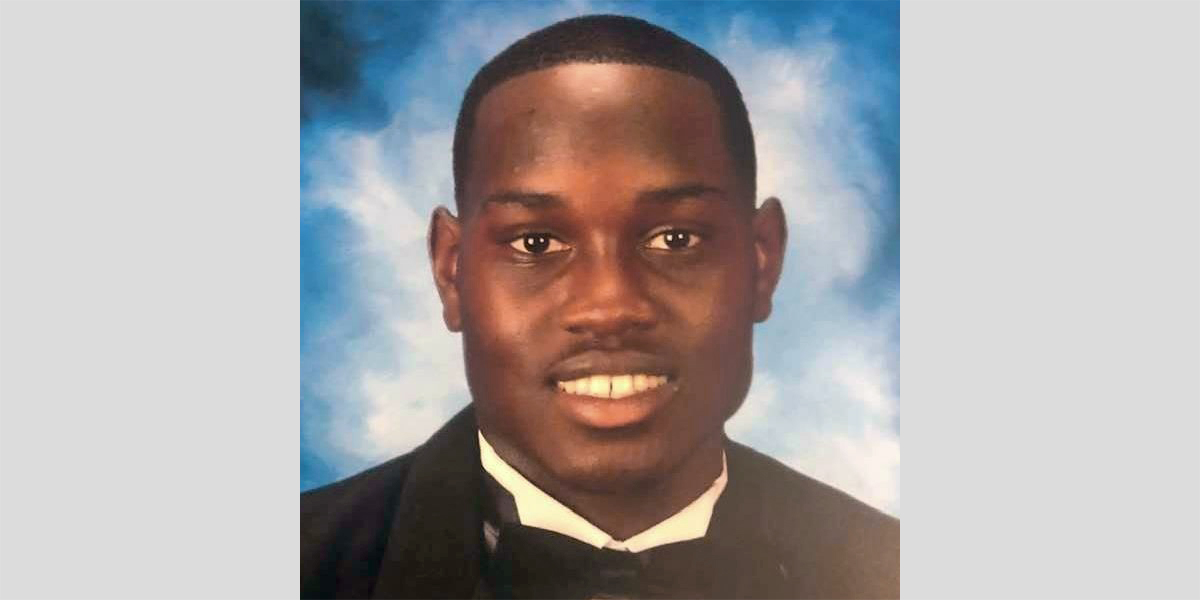You know this story already: A young black man named Ahmaud Arbery went for a run in Brunswick, Georgia this past February, and two men chased him down and shot him in broad daylight. The white men weren’t arrested or charged with a crime until May, after a video of their crime went viral on the Internet.
You have already heard this story. You have heard stories like it, over and over again. And there are thousands more such stories in America’s history that you and I haven’t heard.
There’s another story I’ve been wondering about since I first heard about the murder of Ahmaud Arbery, and that’s the story those white men were telling themselves as they fetched their guns and chased down an unarmed man and shot him dead. What story did they believe themselves to be living in? What did they believe their role in that story to be? What was Ahmaud Arbery’s role in this story of theirs? I wonder if they were the heroes of their story, defending the Satilla Shores neighborhood from the shadowy evil incarnated in the black body of Ahmaud Arbery.
Whatever story those men were telling, I wonder how true it felt to them as February became March and March became April, and it looked like they would face no real legal consequences, though they would face a lifetime of knowing they had killed an innocent man. And I wonder how true the story felt as April became May, and it became apparent that their crime wasn’t going to be swept under the rug after all.
I’m not being rhetorical. I really do wonder what those two and a half months were like for those men. We all have stories whereby we are justified, whereby our side is proven to be the right side. But when it turns out those stories don’t square with reality, what then? Do you tell the truer story, or do you clutch at that old story, like a drowning man clutching at a cinder block?
The right stories have the power to align us with reality–a reality that none of us invented, that continues to exist whether we choose to believe it or not. I don’t mean the status quo, but a reality that is bigger and better and more joyous than the status quo.
But we aren’t telling the right stories. It’s as if we have given up on the idea of a just society and instead are jockeying for position closer to the top of a heap that isn’t worthy of us. We’re telling the stories we want to hear, stories that reassure us that we’re right, stories that gain and/or preserve power for people like us, even as they define “people like us” in ever-narrowing terms.
One problem with pursuing your own selfish interest is that you might get it. You might achieve supremacy in a world shriveled down to the scale of your self-interest–a world that you can enjoy only when you’re a shrunken version of your self, oblivious to the suffering and the dehumanization of others.
As I have said in an earlier episode of The Habit Weekly, self-interest is the great enemy of reality. But reality, as it happens, is the only place where you can hope to live a meaningful, joyful life. To quote Josef Pieper, “The egocentric interests of man must be silenced in order that he may perceive the truth of real things, and so that reality may guide him…”
If you are a Christian person, all of this should be old news. Should be. These days, I don’t know what comes across as old news and what comes across as raving radicalism.
Racism is one of those twisted and twisting stories that pretends to give a realistic account of “just the way things are” when in fact it’s a Satanic projection of self-interest. Russell Moore hits the nail on the head when he says that racism “is rooted in precisely what the Serpent offered in the first place—the idea that we could become deity ourselves, that we can take what we want, that we can decide for ourselves the standards of good and evil, justice and injustice, and that we would not surely die (Gen. 3:4-6).”
This past weekend, Esau McCaulley, a Wheaton professor and Anglican priest, published a sobering opinion piece that Tish Harrison Warren describes as the most Christian thing she’s ever read in the New York Times. I commend it to you. “We need this country to become something different, something more,” he writes. “Black people need to be seen as fully human beings made in the image of God, not a menace to be managed, controlled and extinguished.” That anybody even has to specifically say such a thing is astonishing, but there we are. He’s talking about allowing a bigger, truer story (Black people are fully human beings made in the image of God) to expel a false and shriveled story (Black people are a menace to be managed, controlled, and extinguished.)
I described McCaulley’s essay as sobering, but it’s also hopeful. Because there are always people who are listening for the truer story. “There is no bigger rebellion or miracle in the history of these United States than that of the black Christians who saw in the very book used to justify their oppression a testimony to a God who disagreed.”
Yes and amen. We need to tell truer, better stories, friends. We need to be telling the stories that God agrees with.









Wizardly
This is great stuff, Jonathan.